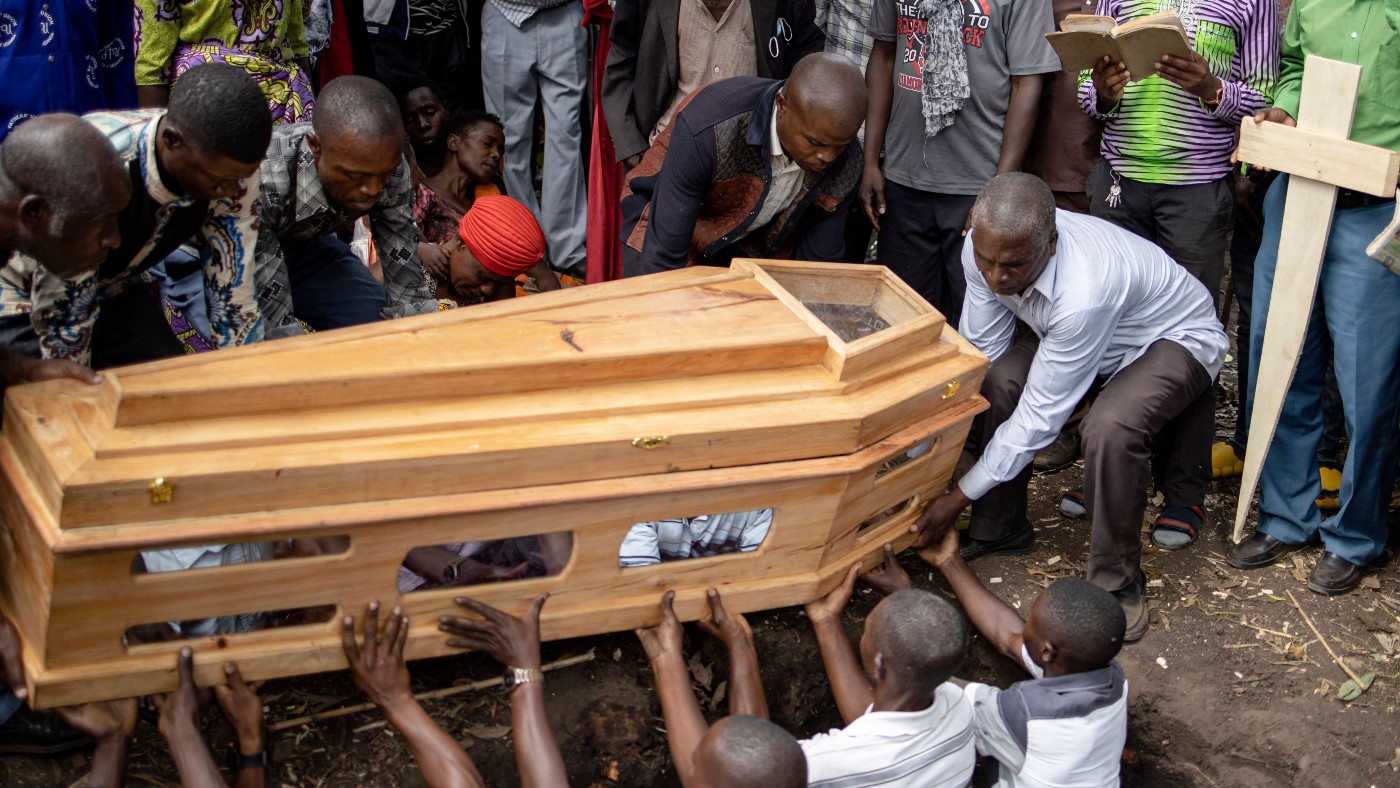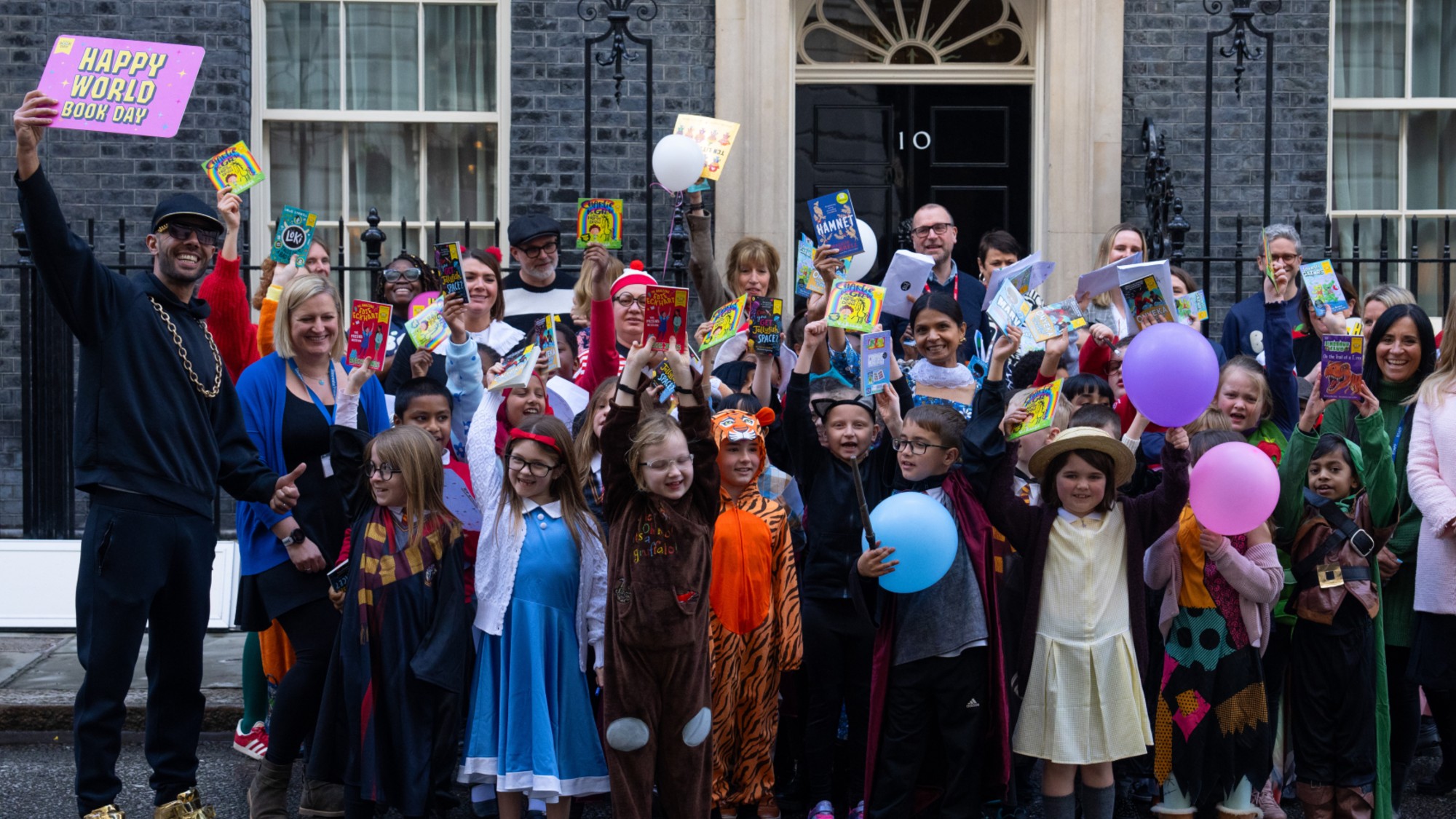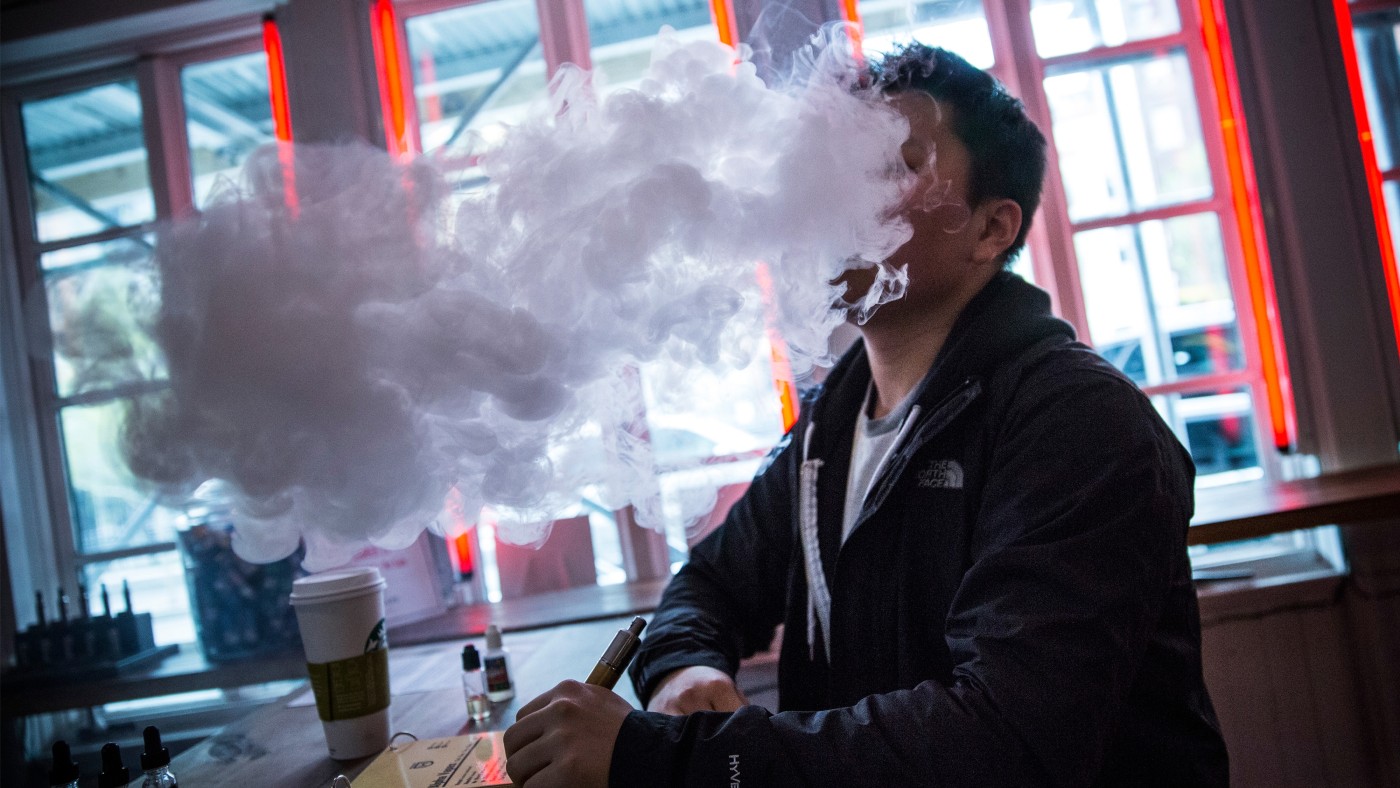Why schoolchildren are regularly being targeted by terrorist groups in many countries
Attacks on schools seen as a good way to bring attention to a cause by armed groups

A free daily email with the biggest news stories of the day – and the best features from TheWeek.com
You are now subscribed
Your newsletter sign-up was successful
Brian J. Phillips, Reader in International Relations at the University of Essex examines the reasons behind the 21st century rise in terrorist attacks on school children across the globe.
An Islamic State-linked group in Uganda attacked a school in June, killing more than 40 people, mostly students, in what seems to be an escalating trend of terrorism against schools. The attackers set fire to school dormitories and used machetes to kill and maim students.
This was the latest in a cycle of shocking attacks on schools around the world. The Nigerian group Boko Haram infamously kidnapped more than 200 girls from a school in 2014, and it has attacked other schools throughout the country.
The Week
Escape your echo chamber. Get the facts behind the news, plus analysis from multiple perspectives.

Sign up for The Week's Free Newsletters
From our morning news briefing to a weekly Good News Newsletter, get the best of The Week delivered directly to your inbox.
From our morning news briefing to a weekly Good News Newsletter, get the best of The Week delivered directly to your inbox.
Many more attacks have occurred since then. In Afghanistan, IS affiliate IS-K has repeatedly bombed educational institutions in recent years, often killing dozens of children or teens. In 2020 in Cameroon, sources suggest that separatists fighting for their own, independent state attacked a bilingual school, killing eight children.
Why would a group carry out such an attack, killing schoolchildren? These attacks are happening more frequently in recent years, and they also tend to be carried out by particular types of groups.
I recently co-wrote a book, Insurgent Terrorism: Intergroup Relations and the Killing of Civilians, with political scientists Victor Asal and R. Karl Rethemeyer, examining the use of terrorism (intentional civilian targeting) by rebel organisations in civil wars. We dedicated a chapter to understanding attacks on schools and discovered a few patterns.
First, attacks on schools are on the rise. In the years examined in our book, 1998-2012, we found a marked increase starting in the late 2000s during civil wars. In the 1990s and early 2000s, there were fewer than 20 attacks per year on schools by rebel organisations. But between 2009 and 2012, there were more than 90 such attacks per year.
A free daily email with the biggest news stories of the day – and the best features from TheWeek.com
Examining more recent data on terrorism generally, and not only during civil wars, we see a similar increase starting in the late 2000s. The graphic below shows a massive increase in terrorist attacks on schools.
Terrorist attacks on schools, 1970-2020
The annual average number of terrorist attacks on schools in the 1980s and 1990s, according to the Global Terrorism Database, was less than 60. In the 2000s, the average year saw nearly 80 school attacks. In the 2010s, there was an average of 250 terrorist attacks on schools per year. After the early 2010s peak, the number of attacks started to decrease, but numbers are still far above what they were in the 1990s or early 2000s.
The increase in terrorism against schools is in part because influential global networks such as al-Qaida and IS seem to encourage it, but also because groups learn from others that this is a good way to bring attention to their cause, to force a government to give in, or to intimidate a rival community.
A second pattern we noticed was that the organisations that carry out these kinds of attacks tend to have a few attributes in common. Groups that attack schools tend to be in alliances with other rebel or terrorist organisations. These alliances provide extra resources to groups, which are essential for large-scale attacks. For example, allies might provide explosives, vehicles or recruits. Cooperative relationships with other rebels can also contribute to heinous attacks because groups learn tactics from each other, and they might pressure each other to use extreme tactics.
This seems to be the case with the group behind the recent Uganda attack, the Allied Democratic Forces (ADF). It has been cooperating with IS since 2017 and has received funding from it. The funds and propaganda support seem to have enabled ADF to carry out increasingly vicious attacks. Additionally, other IS-affiliated groups have attacked schools, so it is possible that the main IS encourages this, or that the groups are learning from each other.
We found that groups that had recently been subjected to government crackdowns were more likely to subsequently target schools, while groups that had recently received government concessions didn’t attack schools the following year. This is consistent with other research finding that government repression of religious freedom seems to lead to terrorist attacks on school.
The Uganda school attack, where boys and girls were killed and buildings set alight with people inside, was apparently intended to send a message to the government and its president Yoweri Museveni. Victims reported that the attackers said: “We have succeeded in destabilising Museveni’s country.”
Interestingly, in our research, we did not find that religiously oriented groups, such as Islamist groups, were more likely than other types of groups to attack schools. Certainly, some Islamist groups have carried out these attacks – such as the recent Uganda school killings.
IS-K’s attacks are intended to intimidate the mostly Shia Hazara minority community, consistent with IS-K’s extreme religious views. But non-religious groups, such as the Revolutionary Armed Forces of Colombia and the Communist Party of India (Maoist), have also repeatedly attacked schools.
Overall, attacks on schools occur because militant organisations see that they bring a great deal of attention – including from international news media – to their cause. Terrorism is fundamentally violent propaganda, and groups that use terrorism constantly innovate, seeking new tactics to help them stand out. They also hope the increasingly extreme methods will pressure governments to give up.
It seems likely that terrorist attacks against schools are going to continue. Governments should prioritise safeguarding educational institutions, and the international community should work harder to prevent these kinds of attacks.
Brian J. Phillips, Reader (Associate Professor) in International Relations, University of Essex
This article is republished from The Conversation under a Creative Commons license. Read the original article.
-
 Local elections 2026: where are they and who is expected to win?
Local elections 2026: where are they and who is expected to win?The Explainer Labour is braced for heavy losses and U-turn on postponing some council elections hasn’t helped the party’s prospects
-
 6 of the world’s most accessible destinations
6 of the world’s most accessible destinationsThe Week Recommends Experience all of Berlin, Singapore and Sydney
-
 How the FCC’s ‘equal time’ rule works
How the FCC’s ‘equal time’ rule worksIn the Spotlight The law is at the heart of the Colbert-CBS conflict
-
 The six-seven meme that has taken over the world
The six-seven meme that has taken over the worldIn the Spotlight With roots in rap and basketball, the phrase has young people obsessed, and it could be here to stay
-
 Telephobia: why young people are being taught how to make phone calls
Telephobia: why young people are being taught how to make phone callsIn The Spotlight Young people are so scared of calls that they 'scream' when their phone rings
-
 Do smartphone bans in schools work?
Do smartphone bans in schools work?The Explainer Trials in UK, New Zealand, France and the US found prohibition may be only part of the solution
-
 What to know about Real IDs, America's new identification cards
What to know about Real IDs, America's new identification cardsThe Explainer People without a Real ID cannot board a commercial flight as of May 7, 2025
-
 Has World Book Day become a 'horror show'?
Has World Book Day become a 'horror show'?Talking Point Annual event to encourage children to read for pleasure is sore spot for parents under 'growing pressure' to create character costumes
-
 7/7: The London Bombings – a 'sombre and compelling' documentary
7/7: The London Bombings – a 'sombre and compelling' documentaryThe Week Recommends 'Meticulous' four-part series marks the 20th anniversary of the 7 July attacks
-
 Taylor Swift shows canceled over attack threat
Taylor Swift shows canceled over attack threatSpeed Read Three upcoming concerts in Vienna were called off due to an apparent terrorist plot targeting large-scale events
-
 How toxins, heavy metals and possibly radioactive polonium are found in vapes
How toxins, heavy metals and possibly radioactive polonium are found in vapesfeature Vapers don’t know what they’re inhaling and cannot be certain of the health impacts